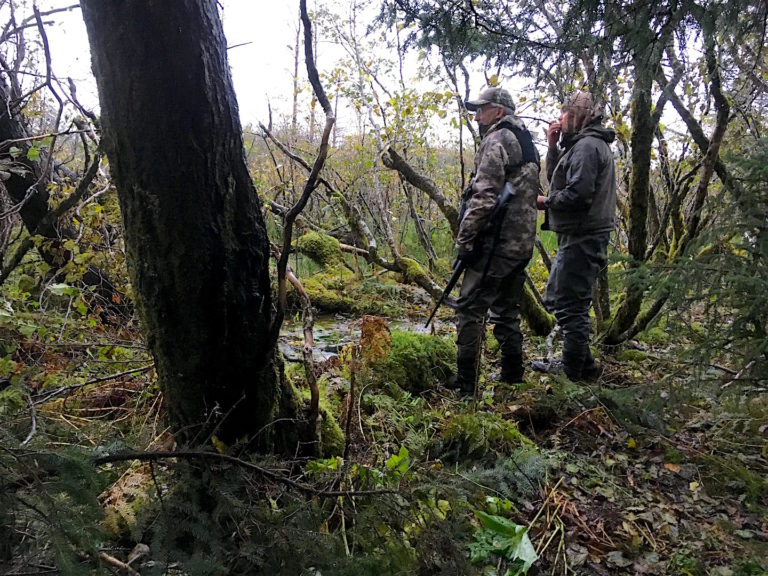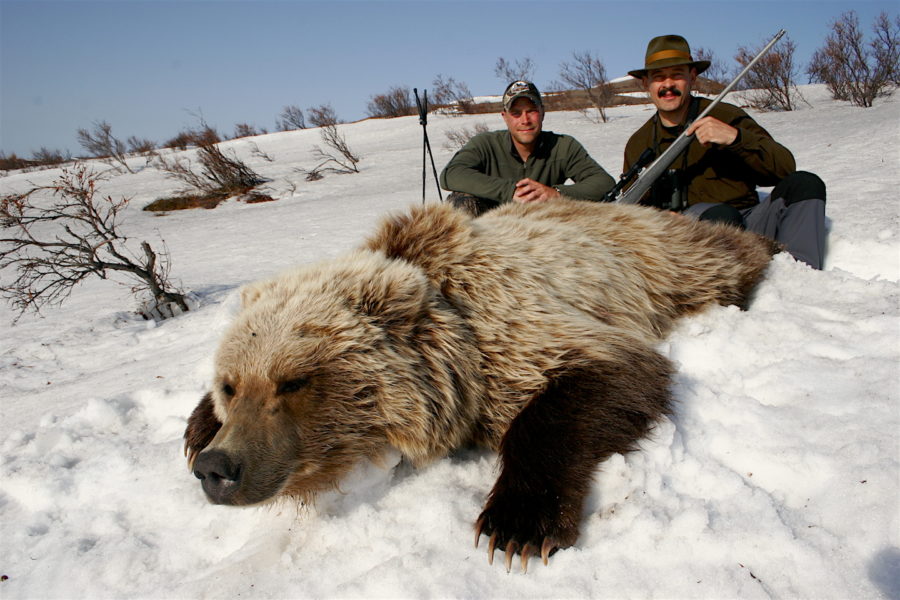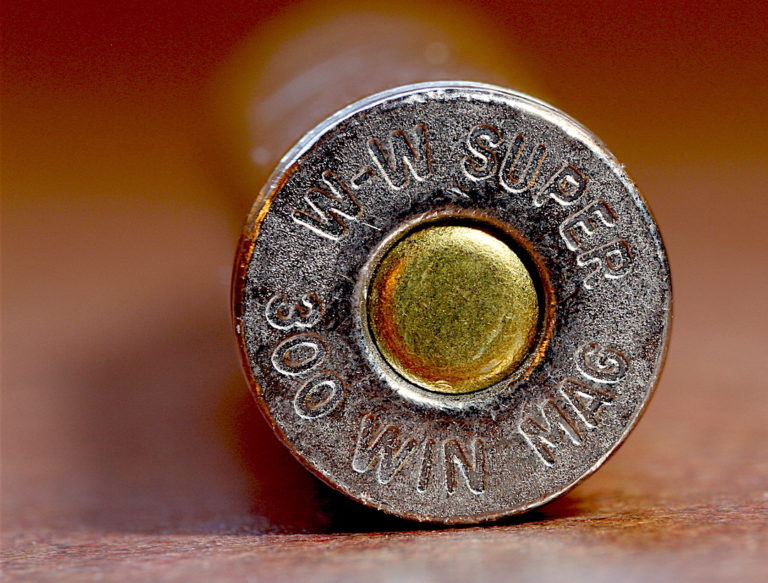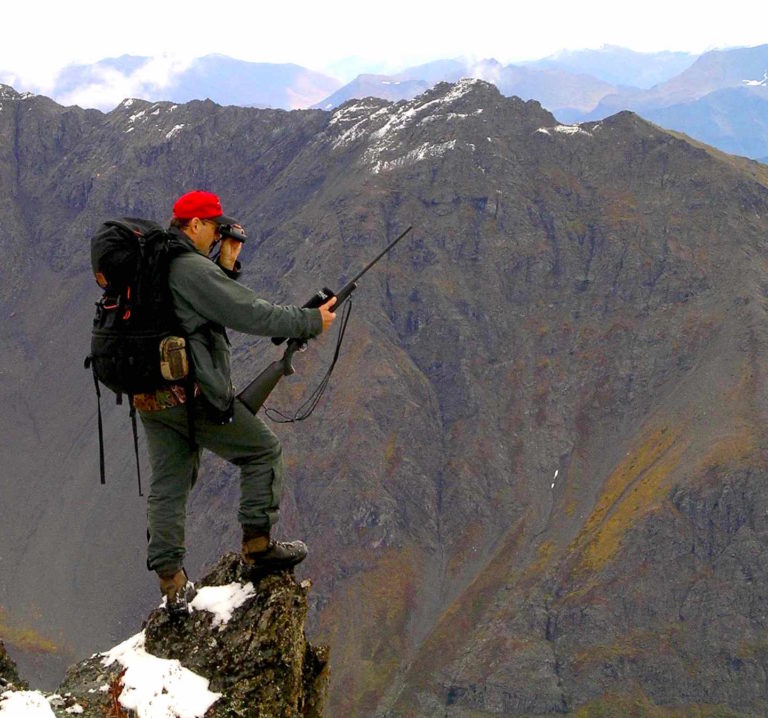A magazine editor recently asked me to write 200 words outlining the all-round, perfect Alaska rifle.
Only 200 words? That was about as improbable as finding the perfect Alaska rifle.
WHAT THE PERFECT ALASKA RIFLE DEMANDS
Where do you discover one rifle that can handle everything from point-blank emergency shots at bears in jungle cover to precisely picking sheep off a far mountain? In tangled cover, long barrels that maximize velocity just get in the way. And the mass and power needed in bullets sent to stop 1,000-pound bears aren’t ideal for leaping 500 yards of mountain air to tip over mountain goats.
Compromise, compromise.
As if those weren’t problematic enough, one must consider Alaska’s nasty weather and isolation. It’s not like you can run to a gun shop or gunsmith for parts or repairs every night after your hunts. A perfect Alaska rifle must stand up to rain, snow, mud, dirt, wind, and rock for days, sometimes weeks on end. It must carry easily in a pack, bush plane, and your hands. It must mount and fire quickly and reliably, yet deliver bullets with pinpoint precision.

Decisions, decisions. Will the perfect Alaska rifle cartridge please stand up?
WHERE WILL YOU NEED YOUR PERFECT ALASKA RIFLE?
When considering these things, one must take into account what one hunts and where one spends most of his and her time in AK. Are you looking mostly for bear protection while fishing or gold prospecting? Or are you mainly hunting moose, caribou, blacktails, black bears, sheep, and goats with minimal time in brown bear habitat? A 1,000-pound Kodiak brown bear charging from an alder thicket at 20 yards suggests a 500-grain hammer at 2,200 fps. But who wants to lug around, let alone hunt sheep with, a 12-pound double rifle chambered in .470 Nitro Express? Or a magnum-length bolt action in .505 Gibbs or .416 Rigby? Or even an eight-pound lever action in .45-70?
We could reasonably step down to a .375 H&H Magnum in a 10-pound rifle, and that’s not a bad option for slightly reducing weight and recoil. With 300-grain Barnes TTSX bullets or Swift A-Frames, we’d be nicely armored against bruins. Switch to 260-grain Nosler AccuBonds and trajectory will nearly match that of a .30-06 throwing 180-grain spire points. That’s more than adequate for sheep, goats, etc. to 400 yards. Still, you’re carrying a heavy rifle with a long barrel that delivers a pretty good punch to your shoulder. Do you want to suffer that for every sheep, mountain goat, moose, caribou, Sitka blacktail, and black bear just because you might hunt a brown bear now and then?
A nice option is the .375 Ruger, which matches .375 H&H ballistics in a 20-inch barrel. That’s quicker and handier in tight quarters, but there’s still the recoil issue. Also, .375 Ruger ammo won’t be found on every store shelf, not that there are many stores of any kind in rural Alaska.
Another good option is the .338 Win. Mag. throwing 250-grain slugs for bears and 200- or even 185-grain spire points for sheep and caribou. Hornady’s 225-grain InterBond has an impressive BC of .515. Launched at 2,800 fps and zeroed at 240 yards, it will land just three inches high at peak trajectory, drop only five inches at 300 yards, and 18 inches at 400 yards. That’s about the same trajectory as your typical 130-grain .270 Winchester, a highly regarded sheep/goat/caribou cartridge.
However, to get this performance you’ll need a 24-inch barrel and the toughness to resist flinching from .338 Win. Mag. recoil. Some of us can, some can’t.
Let’s be realistic here. It’s one thing to “man up” and eat recoil. It’s another to man up and admit heavy recoil inspires us to flinch. As has often been said, better to hit the heart with a .22 Long Rifle than the belly with a bomb.

Steep and open or flat and tangled. Terrain and habitat extremes in Alaska suggest significant differences in rifle size.
LIGHTER-RECOIL OPTIONS FOR THE PERFECT ALASKA RIFLE
So let’s consider the .300 magnums. These are getting a bit light for slamming attacking bears, but a 200-grain Swift A-Frame atop 80 grains of H-1000 delivers 3,600 foot-pounds of hard energy. That’s going to break bones and keep on tunneling. Switch to a 178-grain Hornady ELD-X at 3,100 fps and you’re spitting extreme-range precision. Minimum drop, minimum drift, and maximum retained energy.
Good arguments can be made for various 7mms. Karamojo Bell set the 7mm benchmark pretty high in the early 1900s when he used 175-grain solids in a .275 Rigby (same as the 7x57mm Mauser) to topple roughly 800 elephants and hundreds of buffalo, lions, and other game. Not only was he never eaten, trampled, or gored, he wasn’t even scratched, if I remember Wanderings of an Elephant Hunter correctly.

A Borden Timberline in .300 Caribou throwing 180-grain Barnes TTSX bullets accounted for this barren ground grizzly—but the average brown bear will weigh twice as much.
Despite Bell’s success, I don’t think many of us would want to test our marksmanship and cool against a rampaging grizzly or brown bear, so the 7mm-08 Rem., which is slightly faster than a 7×57mm Mauser, won’t get my recommendation as the perfect Alaska rifle cartridge.
The 7mm Rem. Mag. or 7mm WSM might. I’d want to carry either through bear country with 175-grain Nosler Partitions, Swift A-Frames, or Barnes TSX at the ready. After that, I’d enjoy the superior long-range ballistic potential of any number of 160- to 175-grain bullets like Hornady’s ELD-X.
Stepping down to any 6.5mm is asking for unbearable trouble. The 6.5s are delightful long-range meat rifles, but not what most of us would consider optimum or even adequate for stopping bears with extreme prejudice. They’ll do the job with precision hits to the vitals at distance, but unless you make a brain or spine shot, they aren’t likely to discourage an attack at spittin’ distance.

The venerable .300 Win. Mag. may be the ideal, all-round perfect Alaska rifle cartridge.
PERFECT ALASKA RIFLE DECISION TIME
I’m going to assume you are an all-round hunter/angler/outdoorsman, thus likely to be near bears often and to be hunting open-country ungulates every year. In this case, I would choose a .300 Win. Mag. as my all-round cartridge. Not only does it handle bullets big enough for bears and light/sleek/high BC enough for long-range sheep, but does so without the recoil issues of larger calibers. Also, there is a wide selection of .300 Win. Mag. loads available. It’s just a good, versatile, all-round cartridge.
You could work with other .300s such as the .300 WSM, .300 Ruger Compact Magnum, .300 RUM, .308 Norma Mag, and even the big .30-378 Wby., but none are as universally available as the .300 Win. Mag.
For more from Ron Spomer, check out his website, ronspomeroutdoors.com, and be sure to subscribe to Sporting Classics for his rifles column and features.

